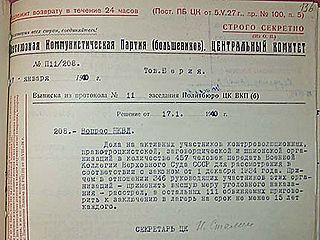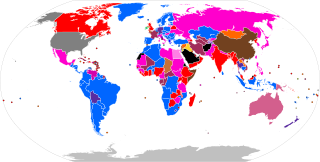
Bulgaria, officially the Republic of Bulgaria, is a country in Southeast Europe. It is situated on the eastern flank of the Balkans, and is bordered by Romania to the north, Serbia and North Macedonia to the west, Greece and Turkey to the south, and the Black Sea to the east. Bulgaria covers a territory of 110,994 square kilometres (42,855 sq mi), and is the sixteenth-largest country in Europe. Sofia is the nation's capital and largest city; other major cities are Plovdiv, Varna and Burgas.

An election is a formal group decision-making process by which a population chooses an individual or multiple individuals to hold public office.

A government is the system or group of people governing an organized community, generally a state.

The politics of North Korea takes place within the framework of the official state philosophy, Kimilsungism-Kimjongilism. Juche, which is a part of Kimilsungism-Kimjongilism, is the belief that only through self-reliance and a strong independent state, can true socialism be achieved.
Proportional representation (PR) refers to a type of electoral system under which subgroups of an electorate are reflected proportionately in the elected body. The concept applies mainly to geographical and political divisions of the electorate. The essence of such systems is that all votes contribute to the result—not just a plurality, or a bare majority—and that the system produces mixed, balanced representation reflecting how votes are cast.

A political party is an organization that coordinates candidates to compete in a particular country's elections. It is common for the members of a party to hold similar ideas about politics, and parties may promote specific ideological or policy goals.

A politburo or political bureau is the executive committee for communist parties. It is present in most former and existing communist states.

A one-party state, single-party state, one-party system, or single-party system is a type of sovereign state in which only one political party has the right to form the government, usually based on the existing constitution. All other parties are either outlawed or allowed to take only a limited and controlled participation in elections. Sometimes the term "de facto one-party state" is used to describe a dominant-party system that, unlike the one-party state, allows democratic multiparty elections, but the existing practices or balance of political power effectively prevent the opposition from winning power.
The Social Democratic Alliance, officially The Alliance – Iceland's Social Democratic Party, is a social democratic, feminist and pro-European political party in Iceland.

The flag of Tanzania consists of a yellow-edged black diagonal band, divided diagonally from the lower hoist-side corner, with a green upper triangle and light blue lower triangle. Adopted in 1964 to replace the individual flags of Tanganyika and Zanzibar, it has been the flag of the United Republic of Tanzania since the two states merged that year. The design of the present flag incorporates the elements from the two former flags. It is one of a relatively small number of national flags incorporating a diagonal line, with other examples including the DR Congo, Namibia, Trinidad and Tobago and Brunei.

The flag of The Gambia is the national flag of the Gambia. It consists of three horizontal red, blue and green bands separated by two thin white lines. Adopted in 1965 to replace the British Blue Ensign defaced with the arms of the Gambia Colony and Protectorate, it has been the flag of the Republic of the Gambia since the country gained independence that year. It remained unchanged throughout the Gambia's seven-year confederation with Senegal.

Direct election is a system of choosing political officeholders in which the voters directly cast ballots for the persons or political party that they desire to see elected. The method by which the winner or winners of a direct election are chosen depends upon the electoral system used. The most commonly used systems are the plurality system and the two-round system for single-winner elections, such as a presidential election, and party-list proportional representation for the election of a legislature.

The Grand National Assembly of Turkey, usually referred to simply as the TBMM or Parliament, is the unicameral Turkish legislature. It is the sole body given the legislative prerogatives by the Turkish Constitution. It was founded in Ankara on 23 April 1920 in the midst of the National Campaign. This constitution had founded its pre-government known as 1st Executive Ministers of Turkey in May 1920. The parliament was fundamental in the efforts of Mareşal Mustafa Kemal Atatürk, 1st President of the Republic of Turkey, and his colleagues to found a new state out of the remnants of the Ottoman Empire.

The Lebanese Parliament is the national parliament of the Republic of Lebanon. There are 128 members elected to a four-year term in multi-member constituencies, apportioned among Lebanon's diverse Christian and Muslim denominations but with half of the seats reserved for Christians and half reserved to Muslims per Constitutional Article 24. Lebanon has universal adult suffrage. Its major functions are to elect the President of the republic, to approve the government, and to approve laws and expenditure.

An electoral system or voting system is a set of rules that determine how elections and referendums are conducted and how their results are determined. Electoral systems are used in politics to elect governments, while non-political elections may take place in business, non-profit organisations and informal organisations. These rules govern all aspects of the voting process: when elections occur, who is allowed to vote, who can stand as a candidate, how ballots are marked and cast, how the ballots are counted, how votes translate into the election outcome, limits on campaign spending, and other factors that can affect the result. Political electoral systems are defined by constitutions and electoral laws, are typically conducted by election commissions, and can use multiple types of elections for different offices.











